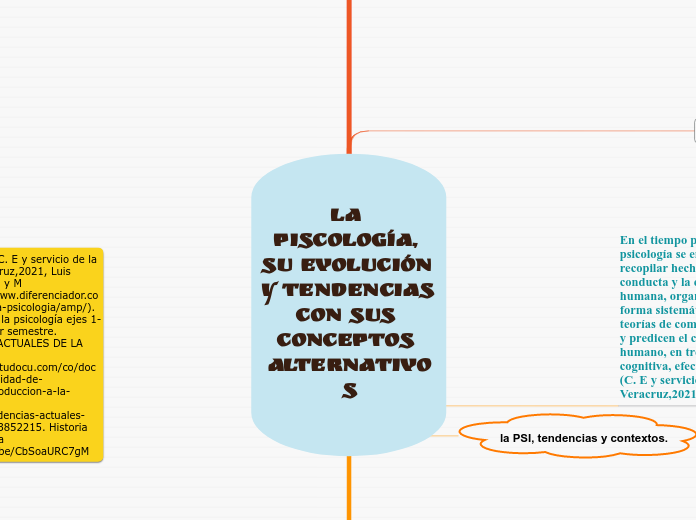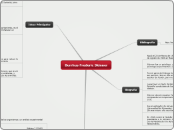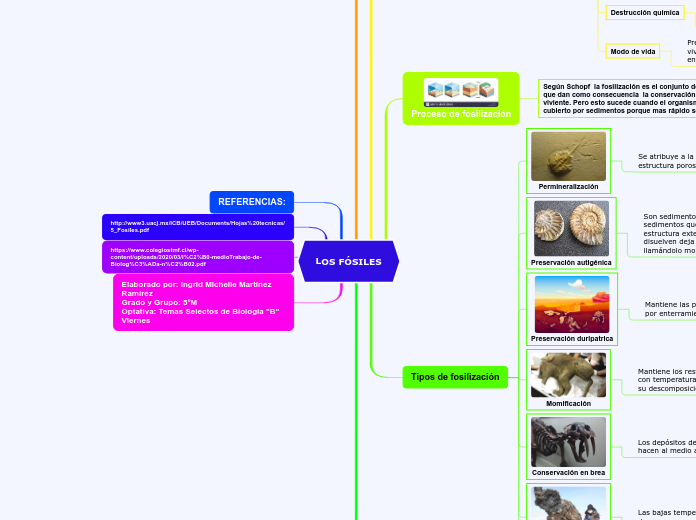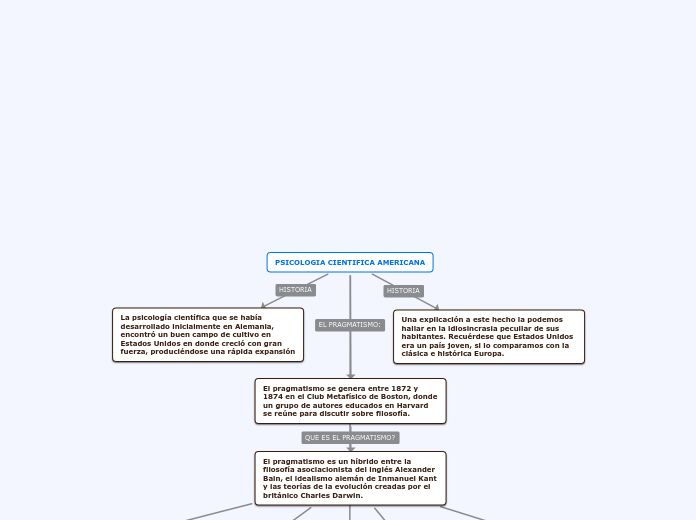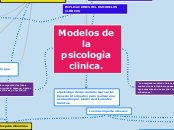referencias: C. E y servicio de la salud. U Veracruz,2021, Luis Zamudio). (S y M 2021https://www.diferenciador.com/ramas-de-la-psicologia/amp/). introducción a la psicología ejes 1-4 FUAA, primer semestre. TENDENCIAS ACTUALES DE LA PSICOLOGIA https://www.studocu.com/co/document/universidad-de-pamplona/introduccion-a-la-psicologia-del-desarrollo/tendencias-actuales-en-psicologia/3852215. Historia de la psicología https://youtu.be/CbSoaURC7gM
La Piscología, su Evolución y tendencias con sus conceptos alternativos
To name your story, you have to think about the overall message and what you want your audience to understand from the story. Also, make it relevant and easy to remember.
Áreas o campos de estudio actuales de la psicología: "TENDENCIAS ACTUALES" (S y M 2021https://www.diferenciador.com/ramas-de-la-psicologia/amp/)
psicología de pareja y de familia
Hospitales y consulta privada
psicología organizacional y de empresa
Organizaciones publicas y privadas, empresas, corporaciones, consulta privada
psicología militar
Hospitales e instituciones militares
psicología gerontológica
Consulta privada, hogares de cuidado de tercera edad
psicología forense
Cortes de justicia, institutos correccionales, agencias legales
psicología experimental
psicología escolar
escuelas colegios y universidades
psicología de ingeniería
Empresa e industrias
Psicología del desarrollo
psicología del deporte
Instituciones y centros deportivos, y universidades, consulta privada
psicología de la salud
psicología comunitaria
Organizaciones gubernamentales
psicologia comparativa
psicología cognitiva del comportamiento
psicología clínica del niño y adolescente
psicología clínica
Hospitales, clínicas de salud mental, consulta privada
psicología biológica
Universidades e investigación
Neuropsicología
Hospitales, universidades e investigación
la PSI, tendencias y contextos.
En el tiempo presente la psicología se encarga de de recopilar hechos sobre la conducta y la experiencia humana, organizándolos en forma sistemática elaborando teorías de comprensión. explican y predicen el comportamiento humano, en tres procesos: cognitiva, efectiva y conductual.(C. E y servicio de la salud. U Veracruz,2021, Luis Zamudio)
Psicología actual:
The ending of a story is essential. We all know that if the ending is weak, what happened before loses its importance. So make it unpredictable, but fair. A resolved ending answers all the questions and ties up any loose threads from the plot.
Cognitivismo 1960-2021
This is the closure section of the story.
See examples of possible outcomes below:
- all problems have been solved
- it's clear how each one of your characters ends up
- your main character is transformed by the challenge
Robert Mills Gagné
Jerome Bruner
Vygotsky
A David Ausubel
Try answering these questions in order for you to come up with a closure:
- Have all problems been solved?
- Is it clear what happens with all your characters in the story?
- Has the challenged transformed your main character?
- How do the characters feel in the end?
Jean Piaget
B. F. Skinner
Try answering these questions to come up with a closure:
- Have all the problems been solved?
- Is there a clear picture of what happens with each character in the story?
- Has the challenge transformed your main character?
- How do the characters feel in the end?
Humanismo XIV-XXL
This is the moment when the main character surpasses the last obstacle and finally faces their greatest challenge.
The climax usually follows one of these patterns:
- realization
- resolution
- choice
Type in your answer.
Carl Rogers: teoría centrada en el paciente
Abraham Maslow: teoría de la motivación humana, jerarquía de necesidades
Jean Paul Sartre: publicaciones sobre el existencialismo
Evolución
The middle of the story is where you add layers of complications that will lead to the end. Reveal more about the character's journey. Did their personality go through changes? How did they overcome the challenges? And as you build up the story’s central conflict, make it more personal to that character. Also, from the middle act, you have to lead into the final act.
Gestalt 1910
There wouldn't be any tension and excitement in your story if there weren't any obstacles in your character's way.
Kurt Kloffka, la conducta de los organismos
Bases del desarrollo psicológico (1921),
Percepción: una introducción a la Teoría Gestalt (1922), Crecimiento de la mente (1924),
Principios de la Psicología Gestalt (1935)
Wolfgang Kohler
Wolfgang Köhler establece el concepto de aprendizaje por insight, o sea, por discernimiento repentino basado en una serie de estímulos previos. Presenta este concepto en su obra La mentalidad de los monos, publicada en 1925
Max Wertheimer
A story is nothing more than a character overcoming a series of difficulties to reach the desired goal. Obstacles usually create suspense and conflict. In overcoming obstacles, there is growth: weak becomes strong; hatred turns into love; sadness into happiness; wrong into right; lies into truth; or evil becomes good.
See a few examples below:
- stopping a meteor
- finding a killer
- finding love
dejó en su obra, Pensamiento productivo, siguen siendo de gran relevancia en nuestros días en cuestiones relativas a la generación de esquemas de conocimiento.
Conductivismo 1913-1938
Your character(s) need(s) motivation in order to solve the challenge(s).
Ivan Pavlov: estudio sobre condicionamiento clásico
Secondary characters might also have motives that lead them to cross paths with the main character or which might trigger them to help the main character.
J. B. Watson y su articulo programático "Psicology as the Behavirist views it".
Why does your character need to confront this challenge? What does he/she expect to accomplish by solving it?
See a few examples:
- will marry in 3 days
- can fix the mistakes of the past
Estructuralismo 1890
Edwar Titchener
publicó varios libros centrados en la teoría y la metodología psicológicas, entre los que destaca Psicología experimental (1901-1905), y fue el editor de revistas científicas tan importantes como la American Journal of Psychology.
Psicoanálisis 1896
Each story has a main character and that character usually needs to solve a problem or challenge. The character's challenge is the one that creates tension throughout the story.
interpretación de sueños por Sigmund Freud
In most stories, there are 3 challenges. The number 3 is a mystical number symbolizing completeness. Try to come up with interesting challenges with which your character needs to struggle.
See a few examples below:
- turns into a werewolf at night
- is sent back in time
Inicio Histórico
In the beginning of the story (or the exposition), you will need to introduce the setting and characters. You might also want to introduce the main conflict. This part of the story is important because it gives the reader necessary background information and maybe even a first insight into a character’s personality.
Filosofía psicológica, inicio de la psicología moderna . 1870-1870 dc. "Funcionalismo"
Wilhelm Wundt: Primer laboratorio experimental en Alemania U. Leipzig
William James
Antecedentes u origines, Siglo 4 ac.- xv dc.
Characters are essential to a good story. Usually, the protagonist(s) is/are the most affected by the plot. Introduce a character by focusing on their actions, interests, and occupation, as the physical appearance doesn't make a difference in most cases.
Descartes
res extensa y res cogitans (cosa pensante) en la metafísica
Agustin - desacrtes
cualidad mente y cuerpo en la teología
What is your character's main goal?
fight Evilfind lovedefeat his/her enemyrule the worldmake friendstime travelmake an awesome discoveryOther
Platón y Aristóteles
Type in the name of your character.
la dualidad: mente y cuerpo
Choose the type of your chacter:
Protagonist (main character)Antagonist (main character's opponent)Flat (stereotypical character)Round (his/ her personality develops throughout the story)Static (doesn't evolve as a person throughout the story)Dynamic (dramatical change in personality)Confidant (the main character trusts him/ her)Foil (contrasting character who enhances the personality of another character)Other
